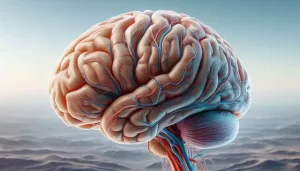Autoimmune gastritis may be an important factor in gastric cancer
- A Persistent Crisis: The Looming Specter of Drug Shortages in United States
- Rabies: The fatality rate nearly 100% once symptoms appear
- Human Brain Continues to Grow: Study Shows Increase in Size and Complexity
- CRISPR Genome Editing: From Molecular Principles to Therapeutic Applications
- Metformin Helps Immune System Better Recognize Cancer Cells
- Highlights of Prostate Cancer Research at the 2024 EAU Congress
- Red Yeast Rice Scare Grips Japan: Over 114 Hospitalized and 5 Deaths
- Long COVID Brain Fog: Blood-Brain Barrier Damage and Persistent Inflammation
- FDA has mandated a top-level black box warning for all marketed CAR-T therapies
- Can people with high blood pressure eat peanuts?
- What is the difference between dopamine and dobutamine?
- How long can the patient live after heart stent surgery?
Autoimmune gastritis may be an important factor in gastric cancer.
There are many factors that can increase the risk of gastric cancer, and Helicobacter pylori is one of them. As early as 1994, the World Health Organization defined Helicobacter pylori as a class I carcinogen.
In December 2021, the U.S. Department of Health and Human Services (HHS) released the 15th edition of the Carcinogens Report, and 8 new carcinogens were added to the new report. In the latest report, Helicobacter pylori is listed as a clear carcinogen.
Helicobacter pylori can be controlled and treated with drugs in time. With the control of Helicobacter pylori in some countries in recent years, the prevalence of gastric cancer caused by Helicobacter pylori has been declining.
As the prevalence of chronic H. pylori infection declines, autoimmune gastritis, a cause of gastric cancer, may become increasingly important.
Autoimmune gastritis may be an important factor in gastric cancer
Although the incidence of gastric cancer has declined over the past 50 years, gastric cancer remains the fifth most common cancer and the fourth leading cause of cancer death in the world [2].
Studies have found that women and wealthy people are more likely to develop gastric cancer.
Wealthy people have lower rates of Helicobacter pylori. Therefore, scholars speculate that autoimmune gastritis (AIG) may be another key factor causing gastric cancer [3].
Autoimmune gastritis is a chronic progressive inflammatory disease that replaces gastric apical cells with atrophic and degenerated mucosa.
The resulting malabsorption and consequent vitamin B12 deficiency manifests clinically as pernicious anemia (PA) and is closely associated with the development of gastric cancer.
Patients with AIG are often asymptomatic, and when patients develop anemia, they may be underdiagnosed or misdiagnosed due to inadequate endoscopic biopsy and/or failure to explore the underlying cause of the anemia [4].
On December 16, 2021, Min-kyung Song, PhD, of the National Cancer Institute, National Institutes of Health, Bethesda, Maryland, published a large prospective study with long-term follow-up in JAMA [1].
This study analyzed the association of anti-parietal cell and anti-endogenous factor antibodies with gastric cancer risk.
The study was conducted in Finnish women of childbearing age (Finnish Maternal Cohort [FMC]; born 1938-1989) and older men (Alpha-Tocopherol, Beta-Carotene Cancer Prevention [ATBC] Study; born 1916-1939) with gastric cancer case control analysis.
The FMC and ATBC studies had 529 and 457 matches, respectively, with a mean subject age of 30.5 and 57.5 years, and a median of 17 and 11 years from baseline to cancer diagnosis.
The results of this study suggest that autoantibody positivity may reflect subclinical autoimmune gastritis in young women.
The findings in younger women and under the coronary sulcus are consistent with an upward trend in cancer incidence in these groups. In H. pylori-negative individuals, autoimmune gastritis replaced H. pylori as a driver of gastric cancer.

Anti-parietal cell antibody (APCA) seropositivity was found to be associated with subsequent gastric cancer in women born since 1938, and the strength of the association was limited to H. pylori-negative women with the highest OR values for fundus and ocular tumors.
In a comparative cohort of older men, APCA and AIFA seropositivity was not associated with gastric cancer regardless of H. pylori serostatus.
This study is the first attempt to quantify the role of AIG in gastric carcinogenesis.
Autoimmune gastritis is a well-recognized precursor to pernicious anemia and may develop into gastric cancer, but its quantitative impact on gastric cancer in the general population is unknown.
Previous studies based on histology rather than serology had smaller sample sizes.
The study reporting the association of gastric cancer with AIG was actually an investigation of pernicious anemia.
In addition, the diagnosis of pernicious anemia is based on questionnaires or vitamin B12 deficiency, the validity of which has not been established.
One study comparing gastric cancer patients and healthy controls found no association between APCA and AIFA and gastric cancer [5], while another study found that APCA seroprevalence was higher in gastric cancer patients than in healthy controls [6].
A prospective study from China reported an inverse association of APCA with cardia adenocarcinoma and no statistically significant association with non-cardia gastric cancer, contrary to expectations.
The authors demonstrated an independent association of AIG with gastric cancer, and different H. pylori status had different effects on the outcome, indicating the existence of two groups of cases with different causes [3][7].
Like other autoimmune diseases, AIG is less common in men. Smoking is inversely related to the incidence of APCA. Conceivably, the men in the ATBC study, who were all smokers, may have a lower incidence of APCA than non-smoking men [8].
Given the increasing trend of autoimmune diseases, women in FMC were born later, which may account for their higher prevalence of autoantibodies than men in the ATBC study [9].
Furthermore, the mean age at diagnosis of the cases in FMC was lower than that in the ATBC study, which is consistent with the relatively young age distribution of AIG-related gastric cancer.
Advantages and limitations of research on the relationship between autoimmune gastritis and gastric cancer
This study starts from the relationship between autoimmune gastritis and gastric cancer, and has the following four advantages.
First, the FMC is a unique population-based cohort. Most prospective cohort studies of chronic disease outcomes, such as cardiovascular events or cancer, involve participants around middle age.
The median age at onset of pernicious anemia is 30 to 39 years old, which means that AIG occurs earlier in this age range.
Although contemporaneous male cohorts cannot be included, it is interesting to assess males from earlier periods, showing no contrast in the autoantibody-gastric cancer association.
Second, this is the largest prospective study to investigate the relationship between autoantibodies and gastric cancer risk.
Third, the study had consecutive samples from the same person over a long period of time to assess changes in antibody levels. Notably, the autoantibody levels of the investigators did not change over time, supporting the robustness of the results of this study [10].
Fourth, the use of commercial ELISA to detect autoantibodies has high reproducibility and can be reproduced in other studies [11].
The study also has some limitations. There is no information on the use of H. pylori eradication therapy or other drugs that may affect gastric cancer risk. It is known that H. pylori seropositivity is strongly associated with gastric cancer.
Autoantibody seropositivity does not necessarily imply the presence of underlying clinical disease. Autoimmune diseases often co-occur [12][13][14] APCA and AIFA may be found in other autoimmune diseases, even in healthy individuals.
It is not known whether these autoantibodies have a pathophysiological role outside the stomach or reflect the underdiagnosis of concomitant autoimmune diseases.
Future studies should include more diverse populations.
The study showed that while the prevalence of autoantibodies did not change much in the control group, there was a relative increase in autoantibody-related gastric cancer cases, while H. pylori-related gastric cancer cases continued to decrease in subsequent years.
These complementary findings provide a clue that autoimmune-driven gastric cancer may be replacing H. pylori as the main driver of gastric cancer.
As the prevalence of H. pylori in the general population declines, autoimmune drives may be an important contributor to gastric cancer incidence.

The growing trend of autoimmune gastritis in the younger generation predicts a future increase in the overall incidence of gastric cancer.
In this cohort study, a new but plausible etiological explanation for this trend is presented, and a broader assessment of autoantibodies in patients with gastritis or gastric cancer may provide insights into reducing the public health burden of gastric cancer. new ideas.
References
1. Song M, Camargo MC, Katki HA, et al. Association of Antiparietal Cell and Anti-Intrinsic Factor Antibodies With Risk of Gastric Cancer. JAMA Oncol. Published online December 16, 2021. doi:10.1001/jamaoncol.2021.5395.
2. Anderson WF, Rabkin CS, Turner N, Fraumeni JF Jr, Rosenberg PS, Camargo MC. The changing face of noncardia gastric cancer incidence among US non-Hispanic whites. J Natl Cancer Inst. 2018; 110(6): 608-615. doi: 10.1093/jnci/djx262.
3. Neumann WL, Coss E, Rugge M, Genta RM. Autoimmune atrophic gastritis—pathogenesis, pathology and management. Nat Rev Gastroenterol Hepatol. 2013;10(9):529-541. doi:10.1038/nrgastro .2013.101.
4. Murphy G, Dawsey SM, Engels EA, et al. Cancer risk after pernicious anemia in the US elderly population. Clin Gastroenterol Hepatol. 2015;13(13):2282-2289. doi:10.1016/j. cgh.2015.05.040.
5. Ungar B, Strickland RG, Francis CM. The prevalence and significance of circulating antibodies to gastric intrinsic factor and parietal cells in gastric carcinoma. Gut. 1971;12(11):903-905. doi:10.1136/ gut.12.11.903.
6.Lo CC, Hsu PI, Lo GH, et al. Implications of anti-parietal cell antibodies and anti-Helicobacter pylori antibodies in histological gastritis and patient outcome. World J Gastroenterol. 2005;11(30):4715 -4720.doi:10.3748/wjg.v11.i30.4715.
7. Toh BH. Diagnosis and classification of autoimmune gastritis. Autoimmun Rev. 2014;13(4-5):459-462. doi:10.1016/j.autrev.2014.01.048.
8. Bizzaro N, Antico A, Villalta D. Autoimmunity and gastric cancer. Int J Mol Sci. 2018;19(2):E377. doi:10.3390/ijms19020377.
9. Song H, Held M, Sandin S, et al. Increase in the prevalence of atrophic gastritis among adults age 35 to 44 years old in Northern Sweden between 1990 and 2009. Clin Gastroenterol Hepatol. 2015;13(9 ): 1592-600. doi: 10.1016/j.cgh.2015.04.001.
10. Ito M, Haruma K, Kaya S, et al. Role of anti-parietal cell antibody in Helicobacter pylori-associated atrophic gastritis: evaluation in a country of high prevalence of atrophic gastritis. Scand J Gastroenterol. 2002; 37(3): 287-293. doi: 10.1080/003655202317284183.
Boda T, Ito M, Yoshihara M, et al. Advanced method for evaluation of gastric cancer risk by serum markers: determination of true low-risk subjects for gastric neoplasm. Helicobacter. 2014;19(1):1- 8. doi: 10.1111/hel.12101.
11. Somers EC, Thomas SL, Smeeth L, Hall AJ. Autoimmune diseases co-occurring within individuals and within families: a systematic review. Epidemiology. 2006;17(2):202-217. doi:10.1097 /01.ede.0000193605.93416.df.
12. Laisk T, Lepamets M, Koel M, Abner E, Mägi R; Estonian Biobank Research Team. Genome-wide association study identifies five risk loci for pernicious anemia. Nat Commun. 2021;12(1) :3761.doi:10.1038/s41467-021-24051-6.
13.Twito O, Shapiro Y, Golan-Cohen A, Dickstein Y, Ness-Abramof R, Shapiro M. Anti-thyroid antibodies, parietal cell antibodies and tissue transglutaminase antibodies in patients with autoimmune thyroid disease.Arch Med Sci. 2018;14(3):516-520. doi:10.5114/aoms.2016.58743.
Autoimmune gastritis may be an important factor in gastric cancer
(source:internet, reference only)
Disclaimer of medicaltrend.org
Important Note: The information provided is for informational purposes only and should not be considered as medical advice.



